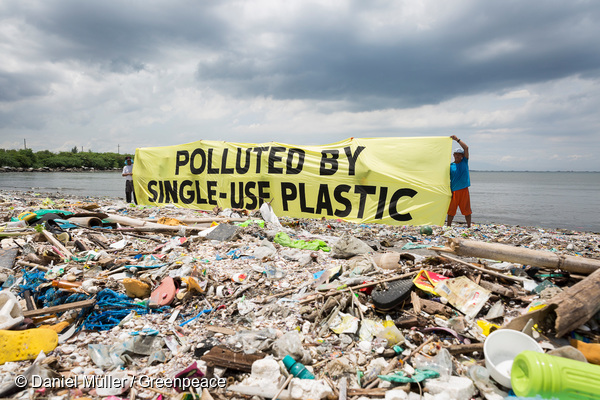There is a monster in this world who kills over a quarter million animals every day. It's almost everywhere and it's infesting our lands, rivers, oceans, lakes, and beaches. Its name is plastic.
The turtle in the picture above was caught in a plastic fishing net in the Mediterranean Sea. National Geographic states that if the photographer had not freed it, the animal would have been part of the over 1000 sea turtles to die every year due to plastic pollution. Plastic pollution kills about 100,000,000 animals every year. They might mistake it for prey and choke on it or become trapped and not be able to get food or even breathe. The worst part is that we are responsible for 100% of this.
 |
These hyenas in Harar, Ethiopia are forced to live in plastic
Source: Brian Lehmann/National Geographic |
Plastic pollution affects us too. The water we drink contains hundreds of micro-plastics that we can't even see. Scientists are not sure if this will harm us, but the fact that we have thousands of little pieces of plastic inside of us is very alarming. According to
National Geographic, these tiny plastics can "penetrate cells and move into tissues and organs." Debra Lee Magadini, a researcher at Columbia University, says, "I think we'll know the answers in 5 to ten years time." Nat Geo says that by then at least another 25 million tons of plastic will have flowed through our seas. Unlike leaves or banana peels, plastic does not decompose very fast. It can take up to 1000 years for plastic to completely disintegrate. Considering that over 40% of plastic is thrown away, you can see why there is so much plastic in the world. Experts are already predicting that the amount of plastic pollution we create will double by 2034. If we don't want future generations to live in a world of plastic, we have to act now.
 |
Greenpeace and the #breakfreefromplastic coalition conduct a beach cleanup activity in the Philippines
Source: Daniel Müller/Greenpeace |
There are many ways you can help. First of all, you can educate your friends and family about how bad the problem is. If you see plastic pollution around you, you could help pick it up. There are also simple things you could do such as recycling or reusing single-use plastics and taking the
National Geographic Planet or Plastic? Pledge. The average American throws away about 185 pounds of plastic each year, so if just you, your family, and your friends start being more environmental, imagine the difference you could make in just a few years. You can show your support by donating to any of the following organizations:


